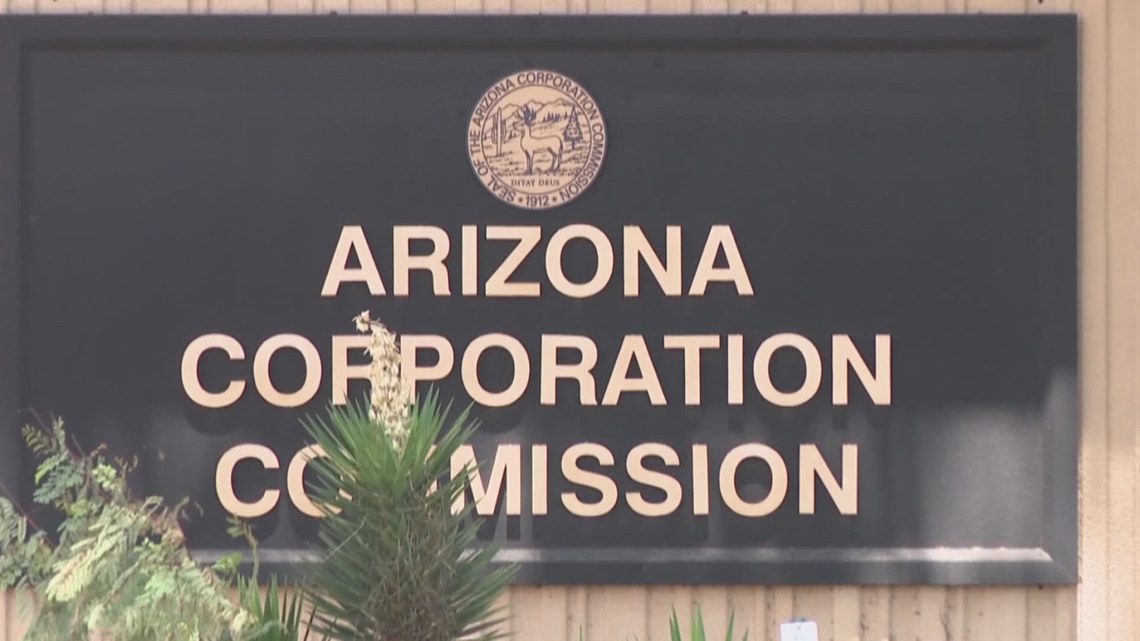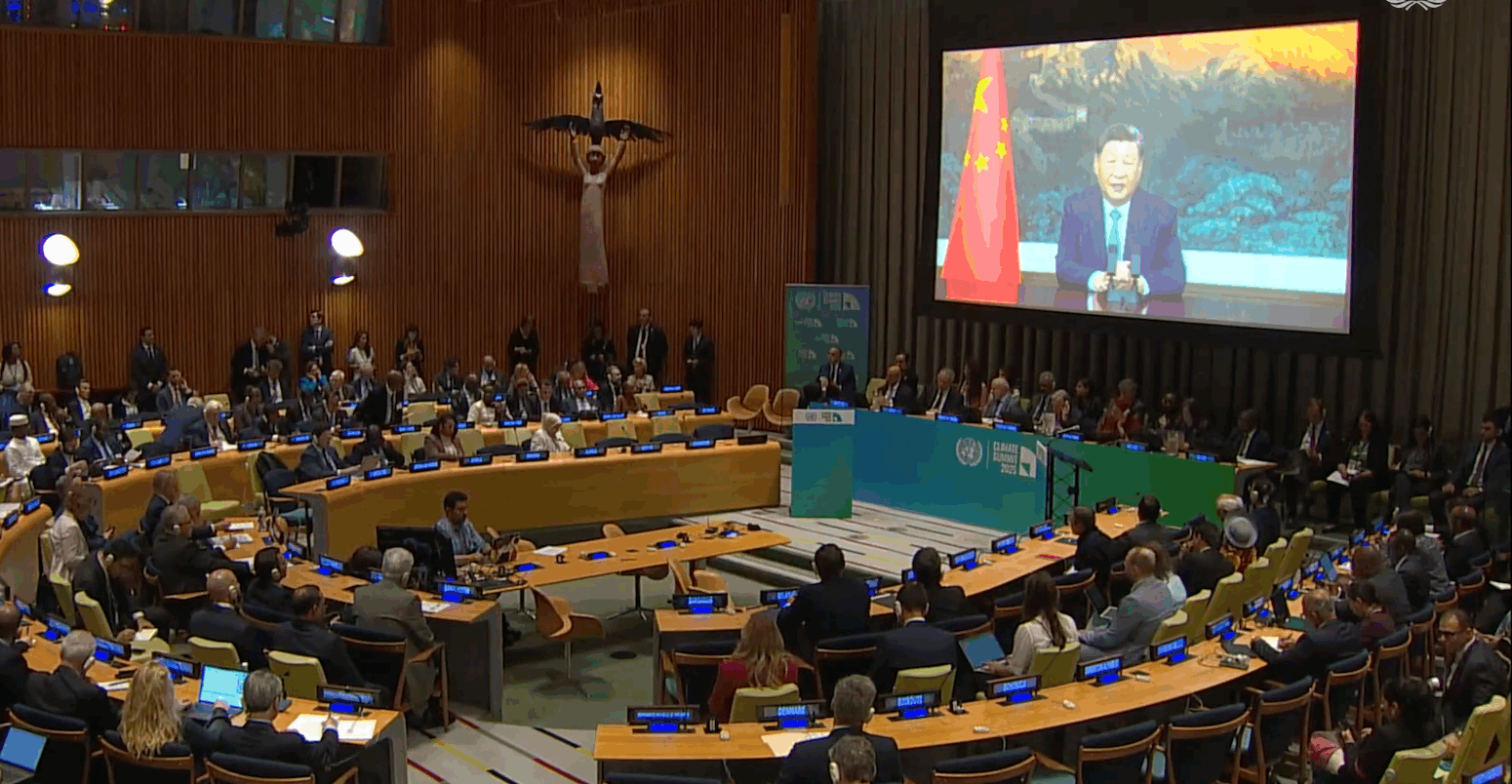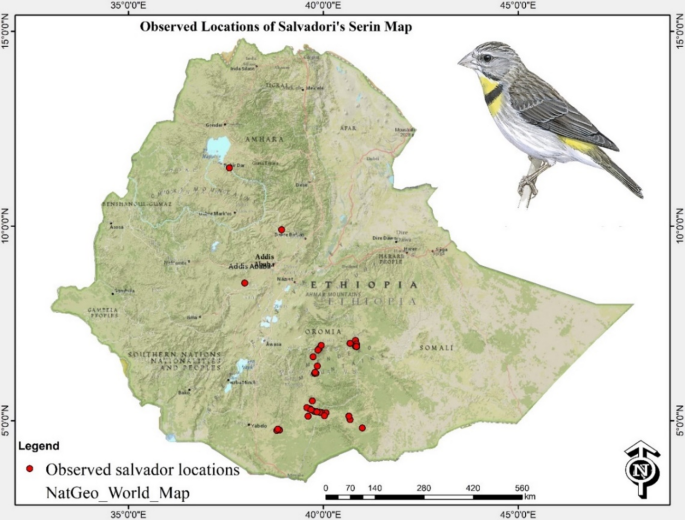Report on Faith-Based Advocacy for Sustainable Energy Policy in Arizona
Introduction: Aligning Local Action with Global Sustainable Development Goals
A nonpartisan, faith-based organization in Arizona, the Mormon Women for Ethical Government (MWEG), is actively advocating for the continuation of state-level energy efficiency and rooftop solar programs. This initiative directly addresses several United Nations Sustainable Development Goals (SDGs), particularly those concerning energy, climate, and inequality. The group is opposing a proposal by the state’s utility commission to eliminate established mandates, framing their position as a matter of ethical governance and environmental stewardship.
Policy Dispute and Relevance to SDG 7 and SDG 13
The core of the issue is a proposal to dismantle policies that support clean energy and conservation. MWEG’s advocacy highlights the critical importance of these local policies in achieving broader sustainability targets.
- SDG 7: Affordable and Clean Energy: The existing mandates for energy efficiency and rooftop solar incentives are practical mechanisms for advancing Target 7.2 (increase the share of renewable energy) and Target 7.3 (improve energy efficiency). Data indicates these programs have successfully reduced energy consumption and lowered utility costs for consumers.
- SDG 13: Climate Action: By promoting conservation and clean energy sources, these policies serve as a direct form of climate action. MWEG argues that repealing them would undermine Arizona’s ability to mitigate climate change and responsibly manage a projected 40% increase in power demand over the next 15 years, thereby conflicting with the principles of Target 13.2 (integrate climate change measures into national policies).
Advocacy Framework: Ethical Governance and Social Equity
MWEG’s approach is rooted in principles of stewardship and social responsibility, connecting their efforts to SDGs focused on justice, equality, and strong institutions.
Key Tenets of MWEG’s Position:
- Protecting Vulnerable Populations (SDG 10: Reduced Inequalities): The organization emphasizes that the negative impacts of climate change and air pollution disproportionately affect lower-income and socially vulnerable communities. Maintaining energy efficiency programs helps reduce the energy cost burden on these households and mitigates environmental health risks.
- Promoting Ethical Governance (SDG 16: Peace, Justice and Strong Institutions): As a nonpartisan group, MWEG advocates for evidence-based policymaking. They contend that dismantling proven, effective standards represents a failure of governance and call for strengthening these policies rather than abandoning them.
- Fostering Partnerships (SDG 17: Partnerships for the Goals): The group’s work exemplifies a multi-stakeholder approach, where a civil society organization engages with government institutions to advocate for sustainable development. Their membership includes individuals from diverse political affiliations, united by a common goal.
Conclusion: A Call for Sustainable and Responsible Stewardship
The campaign by the Mormon Women for Ethical Government in Arizona serves as a case study in how local, faith-based activism can champion global sustainability objectives. Their advocacy for energy efficiency and solar power is a direct appeal for policies that support SDG 7 (Affordable and Clean Energy) and SDG 13 (Climate Action). By grounding their arguments in the protection of vulnerable populations (SDG 10) and the principles of ethical governance (SDG 16), they call for a form of environmental stewardship that ensures a sustainable and equitable future for all generations.
1. Relevant Sustainable Development Goals (SDGs)
SDG 7: Affordable and Clean Energy
- The article’s central theme is the promotion of energy efficiency and rooftop solar programs. This directly aligns with SDG 7, which aims to ensure access to affordable, reliable, sustainable, and modern energy for all. The advocacy for “energy efficiency mandates” and “rooftop solar incentives” is a clear connection to this goal. Furthermore, the article notes that these programs have “lowered electricity bills for all ratepayers,” addressing the “affordable” aspect of SDG 7.
SDG 13: Climate Action
- The actions of the Mormon Women for Ethical Government (MWEG) are explicitly framed as a response to climate change. The article states the group is “confronting the reality of climate change” and promotes “clean energy sources and conservation to mitigate climate change.” This directly corresponds with SDG 13’s call to take urgent action to combat climate change and its impacts.
SDG 11: Sustainable Cities and Communities
- The article connects environmental action to the well-being of communities by highlighting that “lower-income populations and socially vulnerable groups suffer worse from air pollution.” By advocating for measures that reduce emissions, the group is implicitly working towards Target 11.6, which focuses on reducing the adverse per capita environmental impact of cities, including air quality.
SDG 10: Reduced Inequalities
- A key motivation for the group’s activism is the disproportionate impact of climate change on vulnerable populations. The article points to research showing that “lower-income populations and socially vulnerable groups suffer worse from air pollution and climate change.” This concern for equity and the well-being of the most vulnerable aligns with SDG 10, which aims to reduce inequality within and among countries.
SDG 12: Responsible Consumption and Production
- The emphasis on “energy efficiency standards” and “conservation” speaks directly to SDG 12. The article highlights that existing mandates have “significantly reduced energy consumption,” which is a core principle of responsible consumption and achieving the sustainable management and efficient use of natural resources.
2. Specific SDG Targets
-
Target 7.2: Increase substantially the share of renewable energy in the global energy mix.
This target is addressed through the group’s advocacy for “rooftop solar programs” and “rooftop solar incentives.” The article also provides a concrete example of the LDS Church having “500 meetinghouses with ‘solar initiatives’,” demonstrating an increase in renewable energy use.
-
Target 7.3: Double the global rate of improvement in energy efficiency.
This is a central focus of the article. The MWEG’s opposition to scrapping “long-standing energy efficiency mandates” and their belief that “energy efficient standards is the fastest way to make a huge dent in this problem” directly support this target.
-
Target 13.2: Integrate climate change measures into national policies, strategies and planning.
The entire conflict described in the article—a citizen group advocating for the state’s utility commission to maintain existing energy policies—is an example of efforts to ensure climate change measures are integrated into state-level policy and planning.
-
Target 11.6: Reduce the adverse per capita environmental impact of cities, including by paying special attention to air quality.
This target is implied through the group’s concern that “lower-income populations and socially vulnerable groups suffer worse from air pollution.” By promoting clean energy and efficiency, they are working to reduce emissions that contribute to poor air quality in communities.
3. Mentioned or Implied Indicators
-
Reduction in energy consumption
The article explicitly mentions a key indicator for energy efficiency. It states that “utility and government data… shows the mandates have significantly reduced energy consumption.” This is a direct measure of progress towards Target 7.3.
-
Lowered electricity bills for ratepayers
The article notes that the efficiency programs have “lowered electricity bills for all ratepayers.” This serves as an indicator for the “affordable” component of SDG 7 and also implies progress towards reducing economic burdens on households, which relates to SDG 10.
-
Number of renewable energy installations
An indicator for the adoption of renewable energy (Target 7.2) is implied by the specific example given: “500 meetinghouses with ‘solar initiatives’.” This quantifiable number demonstrates tangible progress in increasing the share of renewable energy.
-
Existence of supportive policies and incentives
The article’s focus on the fight to preserve “energy efficiency mandates and rooftop solar incentives” implies that the existence and strength of these policies are themselves indicators of a government’s commitment to climate action (Target 13.2) and clean energy (SDG 7).
4. Summary Table of SDGs, Targets, and Indicators
| SDGs | Targets | Indicators |
|---|---|---|
| SDG 7: Affordable and Clean Energy | 7.2: Increase the share of renewable energy. 7.3: Double the rate of improvement in energy efficiency. |
– Number of solar installations (e.g., “500 meetinghouses with solar initiatives”). – Reduction in overall energy consumption. – Lowered electricity bills for consumers. |
| SDG 13: Climate Action | 13.2: Integrate climate change measures into policies and planning. | – Existence and enforcement of state-level energy efficiency mandates and solar incentives. |
| SDG 11: Sustainable Cities and Communities | 11.6: Reduce the adverse environmental impact of cities, including air quality. | – Implied reduction in air pollution affecting vulnerable urban populations. |
| SDG 10: Reduced Inequalities | 10.2: Promote social, economic, and political inclusion. | – Policies that lower energy costs for all ratepayers, including lower-income groups. |
| SDG 12: Responsible Consumption and Production | 12.2: Achieve sustainable management and efficient use of natural resources. | – Data showing mandates have “significantly reduced energy consumption.” |
Source: 12news.com







